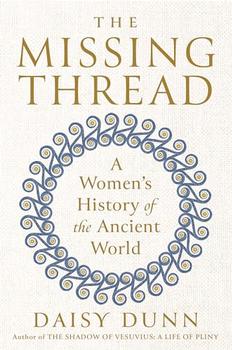Summary | Excerpt | Reviews | Beyond the Book | Read-Alikes | Genres & Themes | Author Bio

This article relates to Skinship
 "Skinship" is a term commonly used to describe physical affection in Korean culture. It can be read as a portmanteau of the words "skin" and "kinship." In the eponymous story from her book Skinship, Yoon Choi puts a different spin on the word's agreed meaning and uses it in an unexpected way. In the last scenes, instead of any kind of loving touch, physical contact in the form of violence becomes the turning point in a dysfunctional family's dynamics, and eventually their fate.
"Skinship" is a term commonly used to describe physical affection in Korean culture. It can be read as a portmanteau of the words "skin" and "kinship." In the eponymous story from her book Skinship, Yoon Choi puts a different spin on the word's agreed meaning and uses it in an unexpected way. In the last scenes, instead of any kind of loving touch, physical contact in the form of violence becomes the turning point in a dysfunctional family's dynamics, and eventually their fate.
"Skinship" may have its origins as an English-derived, Japanese-coined word, and can refer to the bond through touch between mother and child. It has also come to generally describe bonding through physical contact that takes the form of carefree touching, hugging, hand-holding and bodily proximity.
In Korea, this type of physical affection between those of the same gender is common in a non-romantic context. Friends can be seen very comfortably sitting in each other's laps, stroking each other's hands and arms, holding hands, putting their arms around each other's shoulders and hugging. K-pop stars like BTS have been known to be casually touchy with each other, expressing their warmth and friendly feeling liberally.
While skinship between Korean women may not be seen as particularly notable through a non-Korean lens, physical affection among Korean men stands against the norms of many other cultures. For example, in the United States, male same-sex touch in public is often limited to formal handshakes, and maybe a light, friendly hug. Anything beyond that carries the risk of being interpreted quite differently, which in turn carries the risk of homophobic reactions. This shows the contrast in how homophobia manifests in the two cultures: In Korea, same-sex touch between men is not as prone to being interpreted as sexual or romantic, because the taboo homosexuality carries has normalized heterosexuality in a way that makes such interpretations less likely; whereas in the U.S., societal homophobia may make men feel pressured to project an image of heterosexuality.
At the same time, general public displays of romance in Korea are not as commonly accepted as physical touch between family and friends. Public displays of affection between couples can induce embarrassment or awkwardness, especially in people from the older generations, though younger people are getting increasingly bold.
Of course, personal experience affects one's relationship with the expression of physical affection, including among Korean Americans like Choi. Choi says that she first heard the word "skinship" from her mother, who used it to mean "the affection that a mom has for a kid, although it's not limited to the bonds within the family," and remarks that in Korea, "there's a sense of not only physical affection, but also national affection. There's something really lovely about that."
Members of K-pop group BTS hugging at the Mnet Asian Music Awards after winning Artist of the Year on December 2, 2016. Photo by Divine Treasure (CC BY 4.0)
Filed under Places, Cultures & Identities
![]() This "beyond the book article" relates to Skinship. It originally ran in October 2021 and has been updated for the
April 2022 paperback edition.
Go to magazine.
This "beyond the book article" relates to Skinship. It originally ran in October 2021 and has been updated for the
April 2022 paperback edition.
Go to magazine.




Your guide toexceptional books
BookBrowse seeks out and recommends the best in contemporary fiction and nonfiction—books that not only engage and entertain but also deepen our understanding of ourselves and the world around us.